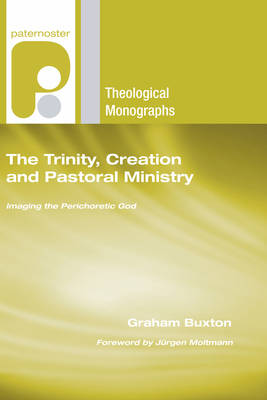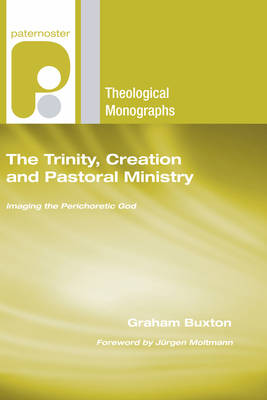
- Retrait gratuit dans votre magasin Club
- 7.000.000 titres dans notre catalogue
- Payer en toute sécurité
- Toujours un magasin près de chez vous
- Retrait gratuit dans votre magasin Club
- 7.000.000 titres dans notre catalogue
- Payer en toute sécurité
- Toujours un magasin près de chez vous
Description
In this book the author proposes a three-way conversation between theology, science, and pastoral ministry. His approach draws on a Trinitarian understanding of God as a relational being of love, whose life spills over into all created reality, human and nonhuman. By locating human meaning and purpose within God's creation-community this book offers the possibility of a transforming engagement between those in pastoral ministry and the scientific community. Although I myself have been concerned very much with developing both a perichoretic understanding of the Trinity and an ecological doctrine of creation, I have found new insights and stimulus for further reflection in every chapter of this book. For this reason I am personally grateful for the appearance of this present work. --Juergen Moltmann, Professor Emeritus of Systematic Theology, University of Tuebingen, Germany The vigorous dialogue in recent years between science and theology has only partially percolated to the parish level. Dr Buxton's project of a three-way conversation between theology, science and pastoral theology is therefore welcome as a timely enterprise. --John Polkinghorne, former President of Queen's College and former Professor of Mathematical Physics, Cambridge University, and Canon Theologian, Liverpool Cathedral Back to the future! Graham Buxton would have us reach back to the ancient image of a perichoresis in God in order to understand the dynamic world of both science and of faith. He contends that this language will provide pastoral workers with an effective conceptual instrument with which to engage scientists in genuine dialogue. It is a volume of constructive theology and truth telling designed to show that the God of healing care is also the God of quantum physics. --Clark H. Pinnock, Professor Emeritus of Systematic Theology, McMaster Divinity College, Hamilton, Ontario, Canada Graham Buxton is Director of Postgraduate Studies in Ministry and Theology, Tabor College, Adelaide, Australia.
Spécifications
Parties prenantes
- Auteur(s) :
- Editeur:
Contenu
- Nombre de pages :
- 346
- Langue:
- Anglais
- Collection :
Caractéristiques
- EAN:
- 9781597527606
- Date de parution :
- 01-01-07
- Format:
- Livre broché
- Format numérique:
- Trade paperback (VS)
- Dimensions :
- 153 mm x 229 mm
- Poids :
- 458 g







